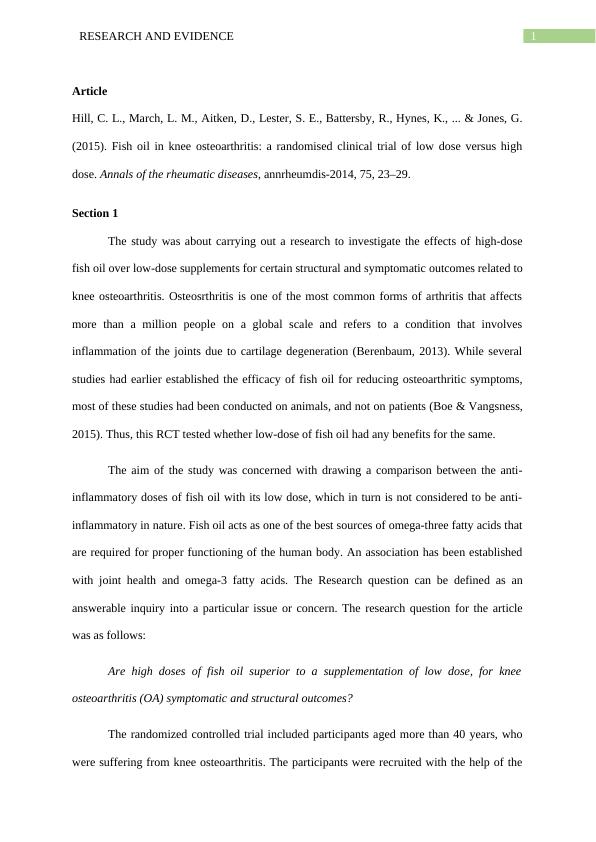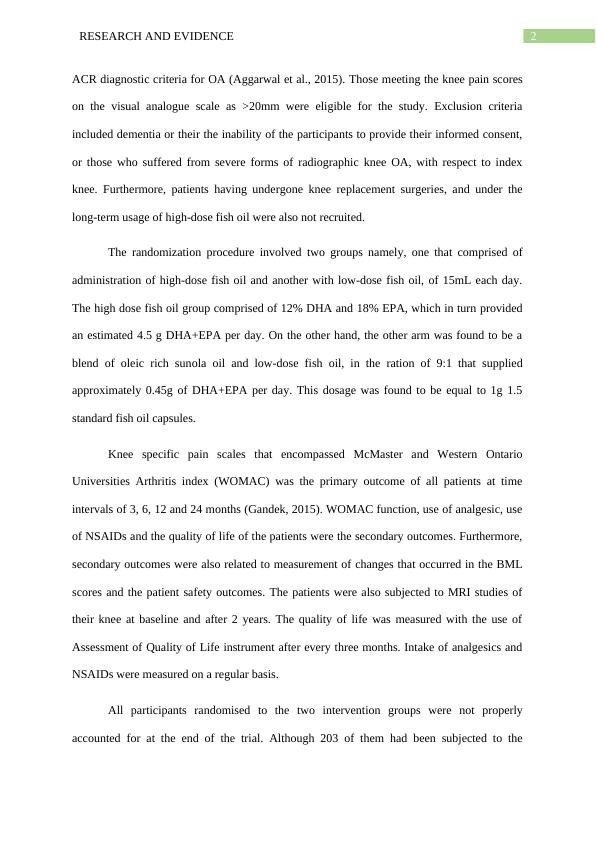Fish Oil in Knee Osteoarthritis: A Randomised Clinical Trial
9 Pages2262 Words377 Views
Added on 2023-06-10
About This Document
This article discusses a randomized clinical trial that investigates the effects of high-dose fish oil over low-dose supplements for certain structural and symptomatic outcomes related to knee osteoarthritis. The study aimed to draw a comparison between the anti-inflammatory doses of fish oil with its low dose, which in turn is not considered to be anti-inflammatory in nature. The research question was whether high doses of fish oil are superior to a supplementation of low dose, for knee osteoarthritis (OA) symptomatic and structural outcomes. The randomized controlled trial included participants aged more than 40 years, who were suffering from knee osteoarthritis. The participants were recruited with the help of the ACR diagnostic criteria for OA. The study found that the low dose fish oil intervention was found to bring about increased improvements in the WOMAC function and pain scores at the end of 2 years, when compared to the high dose treatment group.
Fish Oil in Knee Osteoarthritis: A Randomised Clinical Trial
Added on 2023-06-10
ShareRelated Documents
End of preview
Want to access all the pages? Upload your documents or become a member.
Fish Oil in Treating Osteoarthritis : PICO Question
|7
|1440
|35
Critical Appraisal of Fish Oil in Knee Osteoarthritis
|8
|2101
|295
Use of Fish Oil for Osteoarthritis Treatment - Assignment
|6
|1067
|96
Critical Analysis of the Effects of High-Dose Fish Oil on Knee Osteoarthritis: CASP Article Analysis
|8
|1946
|394
Inquiry Health Care : Case Study
|8
|1584
|35
The Moment Medications
|7
|1279
|33



